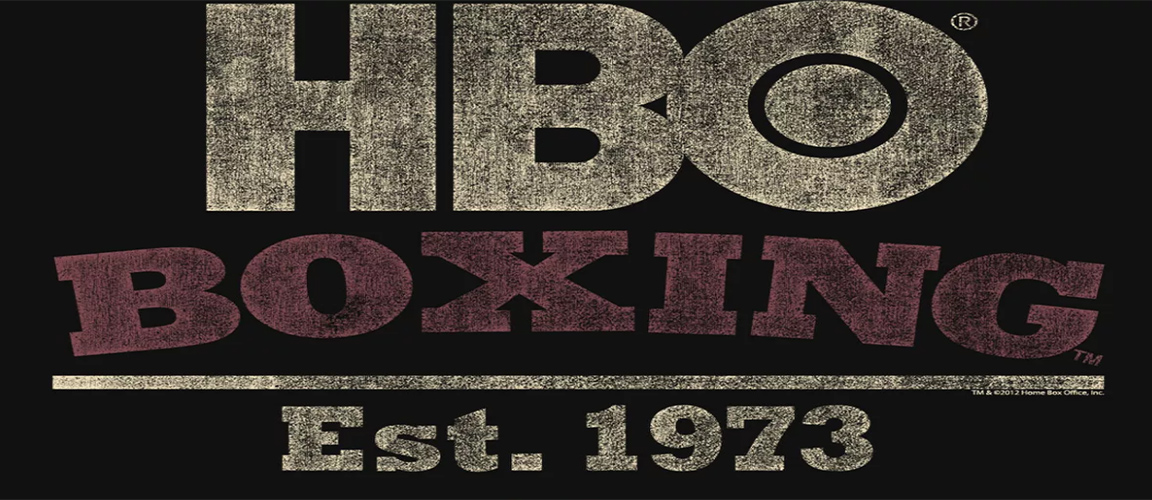At one point in time HBO was the premiere destination for boxing in the United States. For roughly 25 years, HBO boxing ruled cable television. But on September 27th the network announced that after a 45-year run HBO Boxing would end. Aside from the live events, HBO also changed the boxing game with its spin-off shows including “24/7”, “The Fight Game” and “Face Off”. All of which helped promote many of the big cards that they presented in the last decade.
While it is a shock -and sadness- to many, there are some who saw this day coming. Within the last few years HBO watched as its biggest draw, Floyd Mayweather Jr., signed with rival network Showtime. Also, not helping matters was its biggest benefactor in Top Rank Promotions signing an exclusive deal with ESPN, the emergence of streaming services, along with network budget cuts and the continued declining numbers in cable and satellite subscribers.
“I wasn’t surprised (by the announcement). HBO’s boxing coverage has clearly diminished over the last couple of years due to budget cuts,” says Frances Cruz who’s the president and editor-in-chief of 4boxingnews.com. “(I’m) sad but not surprised,” says John Siuntres who’s a longtime boxing journalist, historian, and the host of The Big Bout Podcast. “HBO’s management had been inching towards this for the last few years. The cost of putting fights together wasn’t yielding the number of viewers or subscribers like it did in the past. The business model is shifting (again), just like it did from closed circuit theater viewing of big fights to cable and pay-per-view in the 80’s,” he added.
HBO and Latino Boxers
Aside from the void the HBO will leave for boxing fans in general, it is an especially tough pill to swallow for Latino boxing fans. For many of those 45 years, HBO has showcased many of Latin America’s greatest fighters. From the late Hector Camacho to Felix Trinidad, from Julio Cesar Chavez Sr. to Juan Manuel Marquez and countless others, HBO broadcast their biggest fights. HBO was also the home for the biggest fights of Puerto Rico’s only four-division world champion Miguel Cotto and introduced the world to a fighter from Mexico named Saul Alvarez, the man we know today as “Canelo”.
“(I remember) the featherweight battles between Marco Antonio Barrera and Erik Morales,” said Siuntres. “The Morales/Barrera trilogy really introduced fans to the Mexican style of boxing and showed fans how exciting fights in the lower weight classes could be,” added Cruz.
Another prominent HBO fighter – 1992 Olympic Gold medalist Oscar De La Hoya. His Golden Boy Promotions kept the network’s boxing coverage afloat over the last couple of years with cards such Miguel Cotto’s retirement tour, and Canelo Alvarez’s fights with Gennady Golovkin, the aforementioned Cotto, Amir Khan, and Julio Cesar Chavez Jr. to name a few. During his 16-year career, De La Hoya was prominently featured on HBO. His most memorable matchups included Julio Cesar Chavez Sr., Felix Trinidad, Shane Mosley, Fernando Vargas and Bernard Hopkins. Let’s not forget the Floyd Mayweather and Manny Pacquiao at the latter stages of his career. As John Siuntres proudly puts it, “Oscar De La Hoya grew up on HBO.”
Other Latino boxers who have found success on HBO are former middleweight champion Sergio Martinez of Argentina, Cuban pound-for-pound southpaw Guillermo Rigondeaux, four-division world titleholder Roman “Chocolatito” Gonzalez of Nicaragua, Manny Pacquiao’s rivalries with Mexican legends Juan Manuel Marquez, Marco Antonio Barrera and Erik Morales, Floyd Mayweather’s bouts with Miguel Cotto, Victor Oritz, and Juan Manuel Marquez, Cuban Olympic medalist Joel Casamayor.
With HBO Boxing Gone. See what’s next after the jump…
What’s Next for Boxing
With HBO now out of the picture, Showtime moves up to the top of the food chain with ESPN, Fox, other cable and network outlets, and streaming services now looking to get a bigger piece of the boxing pie. Showtime had already been pushing past HBO in the ratings battle along with their stable of fighters headlined by Mayweather, WBC heavyweight champion Deontay Wilder, former heavyweight titleholder Luis Ortiz, and Mexican featherweight champion Leo Santa Cruz.
“Showtime focused on younger fighters with their Showtime Extreme series in connection with fighters signed by Al Haymon (owner of PBC). Their commentating team seems less biased and more in touch with boxing fans which is something that the HBO commentators were recently criticized for,” says Cruz.
“They pulled Chavez from HBO in the 90’s, and Tyson and Mayweather in the 2000’s while HBO got more selective and settled into deals with Golden Boy for fights,” adds Siuntres.
Streaming services have already entered into the foray of combat sports, the signing Canelo Alvarez to an 11-fight, $365 million contract was a biggest foray into the sport. ESPN is also making waves as well with it’s ESPN + service which is already offering plenty of boxing programming and will start broadcasting UFC content in 2019. Could these advances mean the end of traditional pay-per-view? “Maybe,” says Siuntres. “But more likely it will sit side by side with streaming for those who want to see a major fight without having to subscribe monthly.”
One thing is for certain is that the current shift within the sports media business model is here to stay for now at least. “With Netflix, Hulu, and some of these other streaming services, more people are cutting the cord with cable. There’s already been a model for success with the WWE (World Wrestling Entertainment) and their monthly streaming service (WWE Network),” Cruz said.
HBO may be leaving the sport of boxing but it’s legacy in history has been established and will never be forgotten. The network has definitely set the standard for network boxing coverage.
“Their legacy is secure, 45 years of big fights. They started just as an option to closed circuit theater watching in the 70’s and became the exclusive platform for the great fights of the 80’s and 90’s. They created TVKO which morphed into HBO Pay-Per-View,” said Siuntres about HBO’s legacy.
“I’ll miss the 24/7, Face Off, and 2 Days’ series, which all presented the fighters for a very unique perspective. These series’ were a great way to promote boxing talent and allowed viewers to step into their lives,” Cruz added.
So where does boxing television go from here? “With Matchroom Boxing’s deal to stream fights on DAZN, the PBC’s deal to televise fights on Fox and Showtime, and Top Rank’s deal to televise fights on ESPN and stream fights on the ESPN+ app, boxing is more accessible than ever and the multiple outlets should create competition and should force promoters to put on the best fights,” according to Cruz.
“We’ve seen this (digital) transition with The WWE and UFC. Showtime still seems committed to boxing, and we still have the channels Al Haymon’s Premiere Boxing Champions does business with like the Fox channels, etc.” Siuntres added.
The viewing options for boxing may be rapidly changing but the sport itself is always moving, especially for Latino fans and fighters alike.


